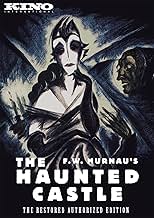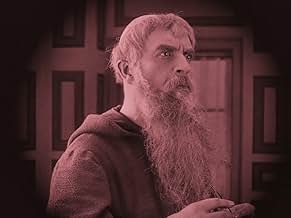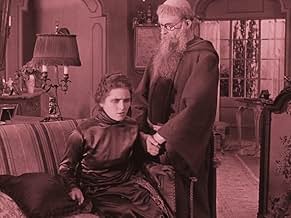"The Haunted Castle" is one of the lesser known and rather unpopular – judging by the other user comments – earliest accomplishments by the great visual artist F.W. Murnau ("Nosferatu", "Faust", "Der Januskopf"). Personally I fail to comprehend why it's so obscure and neglected, because I watched an ambitious and even convoluted whodunit/mystery thriller with eerily atmospheric set pieces, intriguing characters and a few nicely elaborated moments of suspense. Okay, first and foremost, the English title is misleading and even downright irrelevant. The titular caste isn't haunted or besieged by ghosts whatsoever. It's merely the gathering place of a selected clique of prominent aristocrats on the evening before they go fox-hunting. The cozy ambiance is disturbed when the uncanny Count Oetsch shows up at the castle uninvited. Oetsch is accused, especially by the widow, of murdering his own brother. His former sister-in-law arrives later at the party, together with her new husband, and tension rises among the group. The countess goes to confession with another guest, namely the honorable Father Faramünd from Rome. When he mysteriously vanishes as well, Count Oetsch is suddenly suspected of two murders, especially since he behaves so arrogantly and strange. "The Haunted Castle" certainly isn't the visually astounding and hypnotizing expressionist masterpiece that "Nosferatu" was. It's more of a straightforward thriller relying on plot instead of Gothic atmosphere and experimental choreography. This movie is, in fact, released one whole decade sooner than it should have been released. The script is overly "talkative" and contains more interruptions to display dialog and descriptions than any other silent movie from that era I have seen. And then still it seems as if Murnau needed more opportunities for text, as too many sequences show characters talking without their conversations being translated in writing. I really think that F.W. Murnau craved for sound technology here, more half a decade before it became possible, to let his characters express themselves and to generate the apt mood. Nevertheless, a more than interesting and warmly recommended piece of antique for cinema fanatics to check out.





























